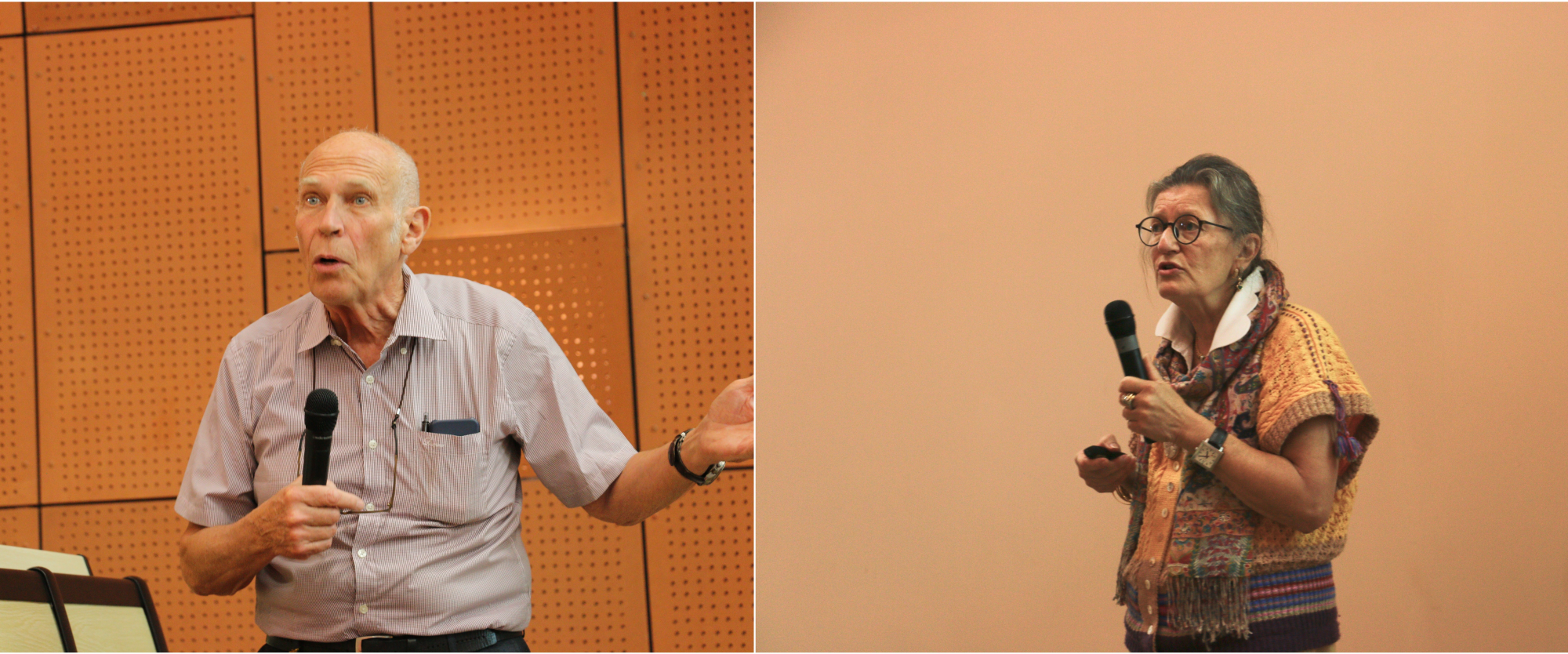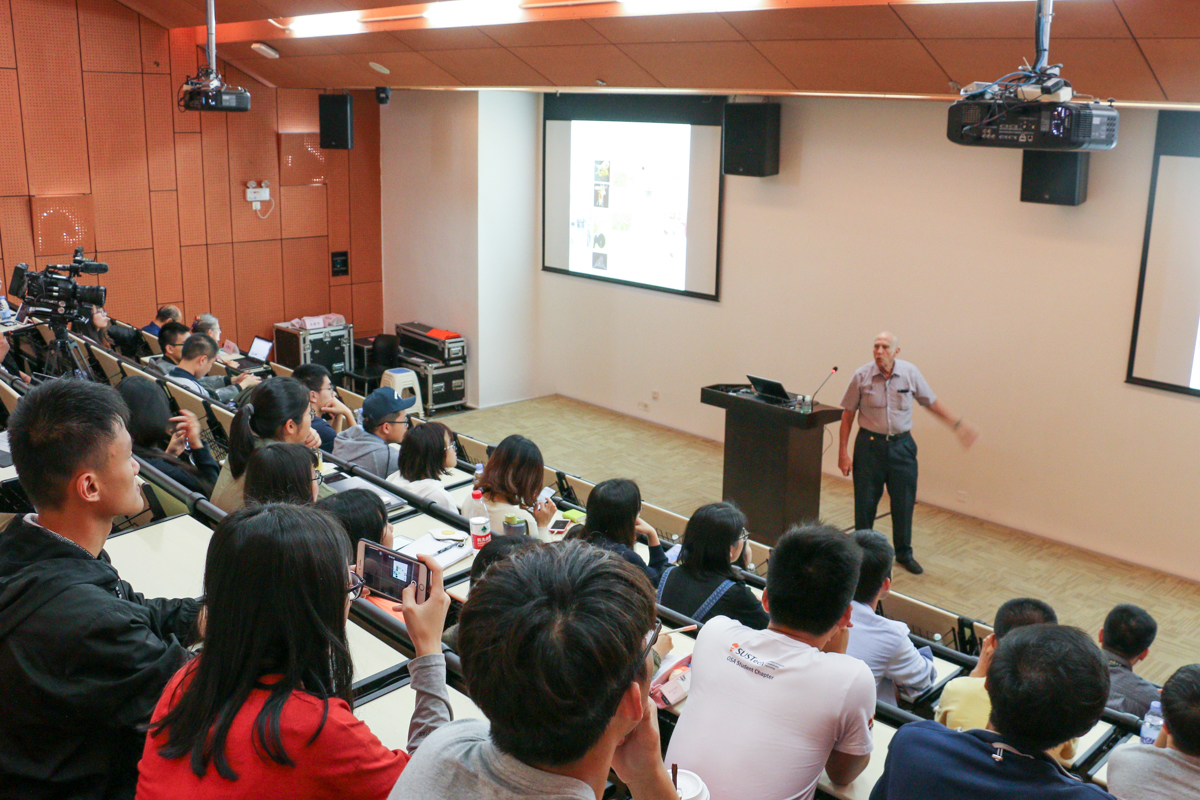As the weather in Shenzhen moved from winter into the sweet scent of spring, Southern University of Science and Technology was blessed with what could only be described as Swedish scientific royalty. Academicians of the Royal Swedish Academies of Sciences and Engineering Sune and Katarina Svanberg came to SUSTech to both give a lecture on “Laser spectroscopy applied to the environmental, ecological and agricultural areas.”
Sune Svanberg has served as a member of the Nobel Committee for Physics for 10 years, including 2 years as its chair. His research interests include laser imaging, detecting and ranging (lidar), biomedical optics and gas scattering media absorption spectroscopy.
 Katarina Svanberg, his wife, is the principal of the Institute of Medical Laser of Lund University in Sweden.
Katarina Svanberg, his wife, is the principal of the Institute of Medical Laser of Lund University in Sweden.
Katarina is the principal of the Lund University Medical Laser Center, in Sweden. In 2010, she was elected as the President of the International Society of Optical Engineering (SPIE). She is currently the Chief Consultant of the Oncology Department at the Lund University Hospital. She has received the Swedish Royal Social Science Interdisciplinary Research Award, the Swedish SKAPA Innovation Award, and the Swedish Social Industry Development Innovation Award.

Sune first introduced the application of laser spectroscopy in environmental, ecological and agricultural fields. He also spoke about its applications in areas like atmospheric optical detection, including Lidar-based active remote sensing technology and passive remote sensing technology using environmental radiation. He believes that “laser spectroscopy can study atmospheric substances of various sizes.” He also mentioned examples of remote monitoring of vegetation and historic buildings using fluorescent lidars.
Katarina supplemented her husband’s comments by explaining the application of laser spectroscopy in food safety and biomedicine. She introduced the advantages of applying laser spectroscopy in skin cancer treatment and the practical need for non-invasive quality control of pharmaceutical preparations and foods.
Sune took numerous questions at the end of the lecture. He particularly focused on the difference between interdisciplinary and professional choices, before lightening the mood with stories behind the Nobel Prize.
Proofread ByXia Yingying
Photo ByStudent News Agency Yu Yu